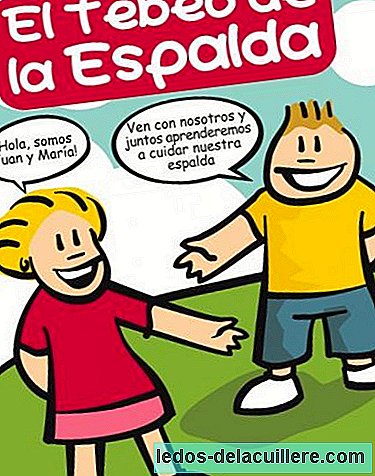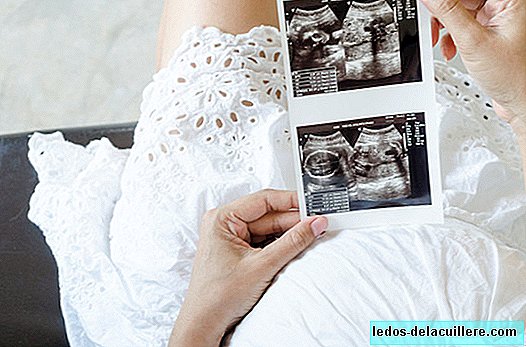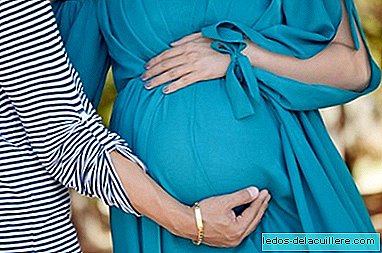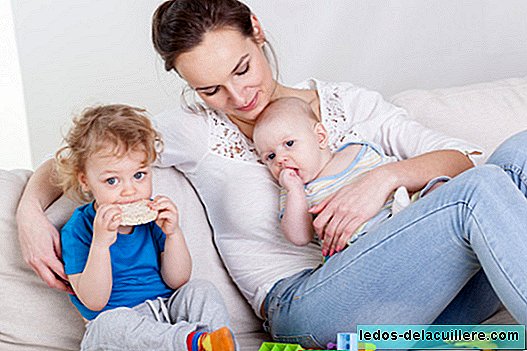
Germany has approved investing about 10 million euros in new family aid. Good time to ask how much Spain invests in the same group. I anticipate that the answer is not very optimistic. But let the figures speak.
The example of Germany
The family investment of the German government is included in the Plan 'Law of relief for families and the adjustment of new tax rules'
Federal Minister of Family, Senior Citizens, Women and Youth, Franziska Giffey, justified these improvements because
“The child benefit must be increased and simplified so that more families and children can benefit from it. From the government we must make the work profitable to give more support to low and middle income families and single parents. ”
Family ministry? Support to the most needy families? How good it sounds! But let's know more.
Among the aid measures of the German government:
Increase in child allowance, 10 euros. Each family will receive after the birth of their first child, 204 euros per month for each of their first two children.
Tax relief. It is estimated that a family with a gross annual income of 60,000 euros will have a tax burden 9.3% lower than the current ones, which will mean an average saving of about 251 euros per family per year; 380 euros if the rent is higher than 120,000 euros.
Reduction in 2,200 million euros of the so-called 'cold progression'. That is, when a worker receives a salary increase that places him at a higher tax rate, which can lead to his end up receiving a lower net income than before for having to pay more taxes.
Differences between Spain, Germany and the rest of the EU
According to data from the Family Evolution Report in Europe 2018, prepared by the Family Policy Institute (IPF).
- Germany has a family specific ministry: The Ministry of Family, Senior Citizens, Women and Youth. They also have a ministry for family affairs: Malta, Finland, Poland, Austria, Slovakia, Slovenia, Croatia and Luxembourg.
In Spain, family policies depend on the Ministry of Health, Consumption and Social Welfare. Each year, it prepares a Guide for social assistance and services for the family, where it informs of any changes. That of 2018 has been updated in July, following the modifications of the current Government.
- Germany dedicated in 2017 a 3.20% of its Gross Domestic Product (GDP); Spain only 1.30%. In fact, Spain was the country with the least GDP invested in the family of the entire European Union.
The Germans invest in family 1,175 euros per person per year; Spain 331 euros. The average of the European Union of 560 euros, from which our country is far away.
- As to benefits per child per year, Germany gave for the first two children, 192 euros; for the third, 198 euros and for the fourth, 223 euros. Help is universal, for all families. Now, it increases by 10 euros. The European average is 103 euros.
And again Spain gives the singing. It offers 24.25 euros for each child (up to three), and with a family income limit per year. According to the 2018 Family Aid Guide, this year will be 11,605.77 euros, and will be increased by 15% for each child or dependent child.
In the case of large families with the corresponding title, the annual income will not exceed 17,467.40 euros. From the fourth child, the family income ceiling will be increased by 2,829.24 euros for each.
Tax pressure. According to the Family Policy Institute, the discrimination between European countries is 12.9% on average and affects 71% of all members. But the difference is also abysmal: in Germany it is -15% pressure and in Spain 19%.
Fiscal benefits. If the Germans will benefit from a tax reduction with the new measures, those in Spain remain stagnant until August!
In 2018, the tax benefits for dependent children in the IRPF depend on the valuation of the family minimum for descendants and ascendants: 2,400 euros per year for the first, 2,700 euros per year for the second, 4,000 euros per year for the third, 4,500 euros annual for the room and the following.
In addition, as explained by the Tax Agency, large families can request the early payment of the deduction of 1,200 euros per year (€ 100 per month) and 2,400 euros if it is a special category.
But as of August, with government reforms, large families with four, six or more children may request an extension of € 600 per year for each child in deductions for large families granted by the state. Or an extension of € 50 per month per child, if the aid is charged in advance.
In Babies and More Paternity leave of five weeks and aid of one thousand euros for the nursery, one step closer, are you going to have a child in 2018? These are the state aid for children offered by the Government












